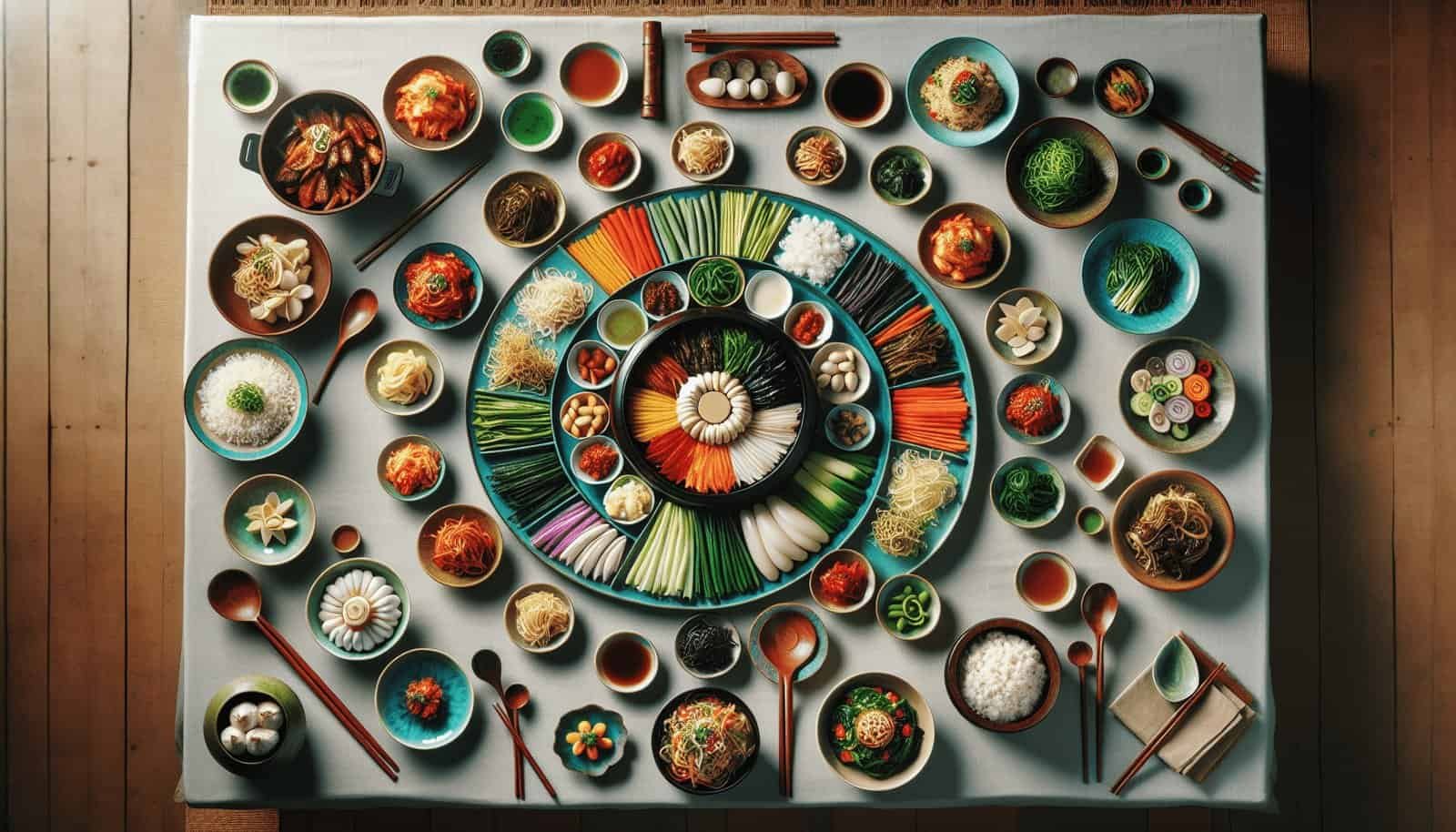Have you ever thought about the impact of food sustainability on your travel experiences, especially when it comes to exploring vibrant and unique culinary destinations like Korea? Food culture is an integral part of Korean identity, making it a magnet for tourists from all around the globe. But there’s an emerging trend that’s starting to influence the way these culinary experiences are crafted and presented: food sustainability.

Understanding Food Sustainability
Before we get into the specifics, it’s important to grasp what food sustainability means. Essentially, it involves adopting practices that help maintain the health of our planet while ensuring food security for future generations. This includes reducing waste, conserving resources, promoting biodiversity, and supporting local economies.
Key Components of Food Sustainability
Here are some vital components that you should keep in mind:
- Local Sourcing: Using ingredients that are grown and harvested locally.
- Seasonal Eating: Consuming food that is in season in order to reduce the ecological footprint.
- Minimizing Waste: Reducing food waste during production, distribution, and consumption.
- Fair Trade Practices: Ensuring fair wages and practices for those involved in the food supply chain.
- Organic Farming: Using farming practices that don’t harm the environment or human health.
The Culinary Tourism Landscape in Korea
Korea has always been rich in culinary traditions, with dishes like kimchi, bibimbap, and bulgogi gaining international fame. These culinary delights are not just about taste but also about cultural significance and history.
Evolution of Korean Cuisine
Korean cuisine has evolved significantly over the years. Here are some milestones:
| Period | Key Developments |
|---|---|
| Ancient Times | Food tied closely to religious and seasonal events |
| Joseon Era | Introduction of fermentation, leading to staples like kimchi |
| Modern Times | Global influence; incorporation of sustainable practices |
Connection Between Food Sustainability and Korean Culinary Tourism
So, how does food sustainability mesh with Korean culinary tourism? Let’s break it down.
Encouraging Local Economies
When you savor a dish prepared with locally sourced ingredients, you’re not just enjoying fresh and tasty food, but also contributing to the local economy. By supporting local farmers and producers, Korean culinary tourism helps sustain rural communities.
Reducing Carbon Footprint
International food exports involve extensive transportation, which contributes significantly to carbon emissions. By focusing on locally sourced and seasonal foods, the carbon footprint is reduced, making your culinary tour greener and more responsible.
Preserving Biodiversity
Traditional Korean agriculture often involves a variety of crops, which helps maintain biodiversity. Sustainable practices ensure that these diverse ecosystems are preserved, allowing you to experience a wider range of unique ingredients and flavors.
Key Initiatives Promoting Food Sustainability in Korea
Several initiatives are helping to align food sustainability with Korean culinary tourism.
Government Policies
The Korean government has been proactive in promoting food sustainability. Policies like the Green Chef Initiative encourage the use of organic and locally sourced foods in restaurants frequented by tourists.
Farm-to-Table Movements
Many Korean restaurants are adopting farm-to-table practices. This means your food is sourced directly from local farms, ensuring it’s fresh and reducing the need for extensive transportation and storage.
Community Initiatives
Local communities are increasingly involved in culinary tourism. Farmers’ markets and food festivals promote sustainable practices while offering tourists an authentic and engaging experience.

The Experience for Tourists
When you participate in culinary tourism with a focus on sustainability, the experience is not just richer but also more meaningful.
Hands-on Activities
Imagine visiting a local farm to pick your own vegetables before a cooking class. This hands-on experience not only makes for a memorable activity but also gives you a deeper understanding of where your food comes from.
Traditional Cooking Classes
Traditional Korean cooking classes are becoming a staple of culinary tourism. These classes focus on sustainable techniques such as fermentation, which have been a part of Korean cuisine for centuries.
Eco-friendly Dining
Many restaurants are now offering eco-friendly dining options that focus on reducing waste and using sustainable ingredients. Your dining experience is not just a treat for your taste buds but also for your conscience.
Popular Sustainable Korean Dishes
You might be wondering which Korean dishes are most aligned with sustainable practices. Here are a few examples:
Kimchi
Kimchi is a perfect example of seasonal eating and fermentation. Traditionally made from seasonal vegetables like cabbage, kimchi is a staple in Korean households and offers a sustainable way to enjoy fermented foods.
Bibimbap
Bibimbap incorporates a variety of locally sourced vegetables, minimizing the need for imported ingredients. It’s a versatile dish that can adapt to seasonal changes, making it both delicious and sustainable.
Doenjang Jjigae (Fermented Soybean Stew)
This traditional stew uses fermented soybean paste, vegetables, and sometimes tofu or meat. The fermentation process is natural and sustainable, and locally sourced ingredients make it environmentally friendly.

The Future of Korean Culinary Tourism
Sustainability is more than just a trend; it’s becoming an integral part of the future of Korean culinary tourism.
Increase in Organic Farming
With growing awareness, more farmers are adopting organic practices, ensuring that future generations can enjoy high-quality, chemical-free produce.
Technological Advancements
Technology will play a significant role in promoting sustainability. Innovations like vertical farming and automated waste management systems can make a big difference in reducing the overall ecological footprint of food production.
Tips for Being a Responsible Culinary Tourist
As a tourist, you have a role to play as well. Here are some tips to keep in mind to make your travel more sustainable:
Research Before You Go
Do some research on sustainable practices in the country you’re visiting. Look for restaurants and tours that focus on local and organic foods.
Choose Eco-friendly Accommodations
Opt for accommodations that prioritize sustainability. Many hotels are now offering eco-friendly amenities and practices.
Reduce Food Waste
Be mindful of food portions to avoid waste. Many cultures serve generous portions, but it’s perfectly okay to ask for smaller servings.
Support Local Businesses
Whenever possible, buy from local markets and dine at family-owned restaurants. This not only enriches your experience but also supports the local economy.

Conclusion
Food sustainability is playing an increasingly significant role in shaping Korean culinary tourism. By focusing on sustainable practices, not only are you ensuring a richer, more authentic experience but also helping to protect the planet. From government initiatives to local movements, there’s a concerted effort to make Korean cuisine both delicious and sustainable. So the next time you find yourself indulging in the flavors of Korea, you’ll know that you’re part of a larger movement towards a more sustainable future.
